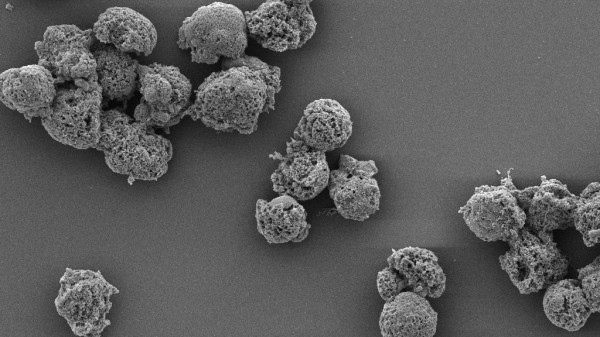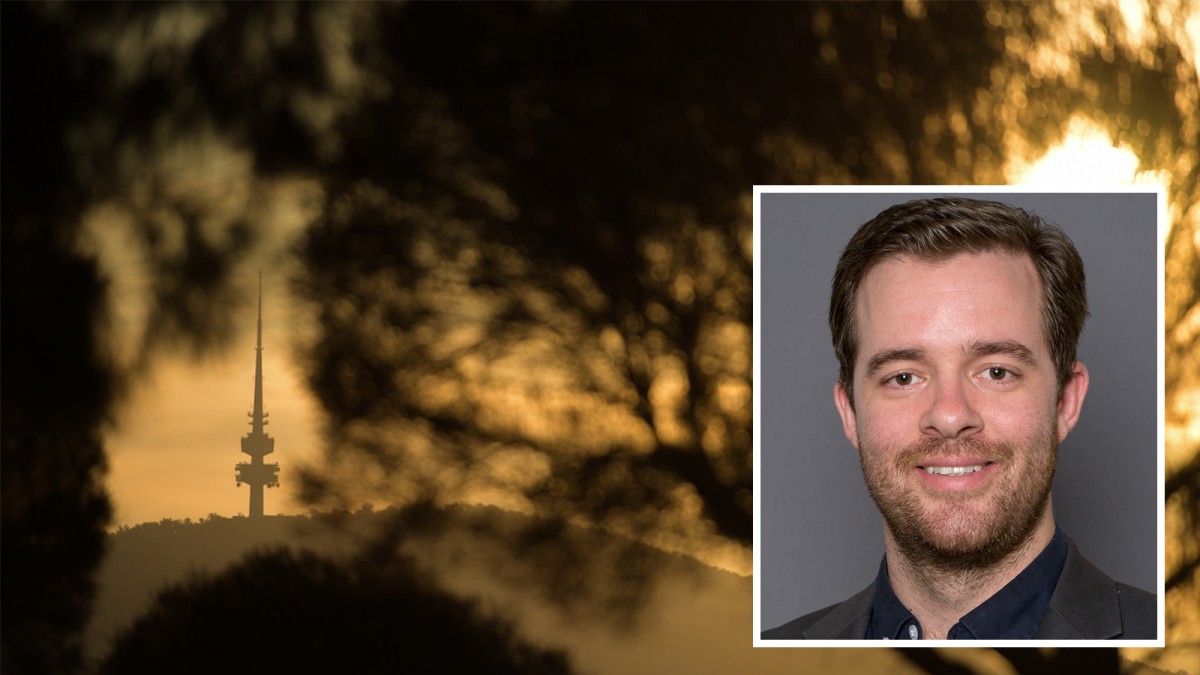Early-career researchers from The Australian National University (ANU) have been acknowledged with ACT Young Tall Poppy Science Awards for research ranging from the exploration of more sustainable chemical manufacturing to improving doctor-patient communication.
Dr Eliezer Estrecho, Dr Jamie Hicks, Dr Maria Dahm and Dr Bradley Jack have been recognised for their significant contributions to science and their outstanding impact on community engagement and outreach.
Created in 1998 by the Australian Institute of Policy and Science, the awards celebrate researchers that have demonstrated a passion for scientific communication and excellence in their chosen fields.
Dr Estrecho, from the ANU Research School of Physics, studies the foundational properties of a quantum fluid called polariton condensates, which are hybrids of light and matter.
Through unlocking the potential of these condensates, he aims to address the unsustainable increase in energy consumption caused by artificial intelligence and the internet.
“By understanding the properties of these particles, we hope to discover functionalities that can be useful for future low-energy electronics and quantum technologies,” Estrecho says.
He hopes that in his role as a scientist he can inspire future generations of researchers and promote further support for science.
“I treat outreach through communicating my research publicly and engaging with school students as a crucial part of my job as a scientist,” he says.
“Receiving this recognition inspires and empowers me to enhance and expand my public engagement efforts.”
Dr Jamie Hicks, a senior lecturer at the ANU Research School of Chemistry, is exploring sustainable alternatives for the synthesis of fine chemicals.
He explains that while the chemical manufacturing industry produces many of the chemicals that we rely on in our everyday life — such as pharmaceuticals, materials for medical devices, cosmetics and cleaning products — the industry is also not sustainable. The vast majority of the starting materials for these products come from crude oil.
Hicks leads a research group that is exploring alternative starting materials for fine chemical synthesis, including utilising waste products from other industrial processes like carbon dioxide, which will reduce waste and minimise crude oil usage.
“Being selected as a Young Tall Poppy is incredibly humbling, and I see it as a reflection of the dedication and achievements of the students and postdocs in my research group,” Hicks says.
“Their hard work, curiosity and commitment to advancing our field have been instrumental in reaching this point. This recognition truly belongs to the whole research group.”
Senior Research Fellow Dr Mary Dahm examines real-life clinical interactions to investigate the communication between doctors and patients during the diagnostic process, particularly when there is a level of uncertainty.
By gathering evidence of how language impacts diagnostic safety, Dahm aims to make healthcare safer by developing guidelines that improve doctor-patient communication.
“I am honoured to be selected as a 2024 Young Tall Poppy for the ACT,” she says.
“For me, this recognition is a great opportunity to raise awareness about the crucial role communication plays in healthcare, particularly during diagnosis and in mitigating the risk of misdiagnosis.
“I’m grateful for the platform the Young Tall Poppy will offer me to raise awareness amongst the community about how important effective communication is in healthcare settings.”
Dr Bradley Jack is a cognitive psychologist whose research focuses on how our brains generate inner experiences, such as consciousness, inner speech and an individuals’ sense of agency.
This is done through a combination of behavioural and electrophysical techniques, advanced signal analyses and computational modelling.
Jack says he is honoured to be selected and that “by deepening our understanding of these processes, we can make real progress in addressing mental health disorders and developing innovative technologies”.
One innovative technology from understanding the inner experiences of the brain could be developing brain-computer interfaces that enable individuals to communicate using their mind.
“I’m grateful for the support of my colleagues, mentors and family, and I look forward to continuing this research and bridging science and society,” Jack says.
The ANU recipients join a cohort of more than 50 ACT scientists who have been honoured since the award scheme’s inception in 2002.
This article was first published on ANU Reporter.










